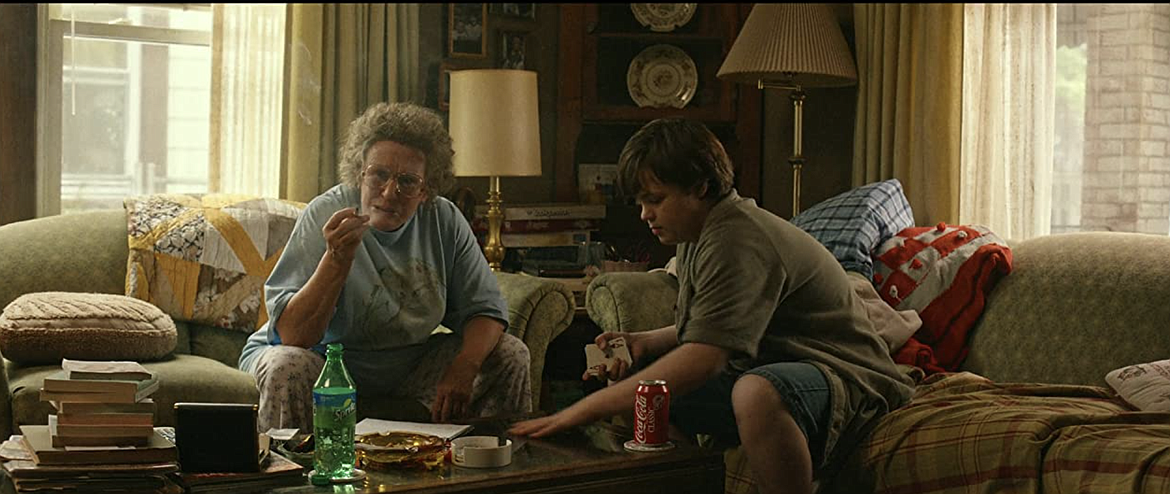Politics aside, ‘Hillbilly Elegy’ drowns in melodrama
J.D. Vance’s memoir, “Hillbilly Elegy” became a hit in 2016, fueled by a media interest in rural Appalachian culture. Some used the source material as a means to define a certain lifestyle in America, and others made broad judgments about the types of people portrayed in the story.
The movie adaptation of “Hillbilly Elegy,” directed by Ron Howard, seems intent on stripping away all the political noise surrounding the book. Given the divisive state of the country, it’s honestly a noble cause. Unfortunately, the movie relies on shortsighted and artificial melodrama rather than nuanced characterization, resulting in a movie that’s consistently unbearable to watch.
In short, “Hillbilly Elegy” is a bad movie, though not for the reasons being tossed around by other media outlets.
Gabriel Basso plays J.D., a law student at Yale who must return to his hometown in Ohio to urge his drug-addicted mother, Bev (Amy Adams) into a rehab facility. The film frequently flashes back to more formative years (with Owen Asztalos as a pre-teen J.D.) where he navigates Bev’s unpredictable behavior while bonding with his more-attentive “Mamaw” (Glenn Close under significant makeup).
The flashback structure lacks logical urgency as it depicts elements of J.D.’s younger life without a clear connection to the adult version. Part of the problem can be attributed to a peculiar lack of engagement from both actors. J.D. isn’t much of a character here, as he only seems to exist in scenes as a counterweight to the “big” performances from Adams and Close.
Adams, a multiple Oscar nominee and easily one of the best actors of her generation, struggles to find a consistent voice for Bev. Too many scenes force Adams to shout and rage (because drugs), but she never finds a balance between that and the moments in which Bev is depicted as a competent, affectionate mother. It’s a theatrical, cartoon version of a character, and so it never once elicits a genuine emotional connection.
Glenn Close, on the other hand, does manage to conjure a real character in Mamaw, though her presence is limited to the film’s flashbacks. Even underneath the Oscar-baity makeup and wardrobe, Close creates a person with history and believable contradictions. Her infamous “Terminator” speech is still pretty stupid though.
Ron Howard, probably the embodiment of a “journeyman” studio director, doesn’t match the material of “Hillbilly Elegy” at all. The movie’s superficial look, complete with fussy dramatic framing and camera moves, undermines the movie’s attempt at fly-on-the-wall realism. Even the shaky cam shots seem too mannered.
In attempting to strip away judgment and create a more universal story of addiction and family strife, Howard and screenwriter Vanessa Taylor turn the film into a directionless and insufferable slog of cliches. Those who criticize “Hillbilly Elegy” for the politics of its source material seem to undervalue how core missteps in plotting, tone and characterization can be so destructive to a film’s overall effectiveness.
It’s just not very good, though in an awards season as ravaged as the one in 2020, don’t be surprised to see the film’s sole bright spot, Glenn Close, get thrust into Oscar glory. She’d be the latest victor in the already long list of “great performances in otherwise dreadful movies.”
“Hillbilly Elegy” is streaming on Netflix.
• • •
Tyler Wilson has been writing about movies for Inland Northwest publications since 2000. He co-hosts “Old Millennials Remember Movies,” available everywhere you find podcasts. He can be reached at twilson@cdapress.com.



